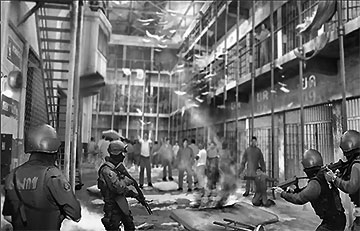how personal revelation eased the drama and heartburn of the Costco Food Court
![]() 2024 note to readers: This is a mercifully trimmed down version of the story that first appeared on Wx4 about 2007, when I was still one of the Amtrak minions. Another thought: The yearly finishing school sessions, as below, eventually so tortured me111
2024 note to readers: This is a mercifully trimmed down version of the story that first appeared on Wx4 about 2007, when I was still one of the Amtrak minions. Another thought: The yearly finishing school sessions, as below, eventually so tortured me111
|
I've always figured that in primitive societal conditions, such as those found in your typical railroad training class, it is best to keep things down-to-earth and save the lofty ideas and 'creative' teaching methods for a more receptive crowd, say perhaps the boys tending the local sanitary landfill.
My employer, Amtrak, thinks otherwise. The company requires us to attend what we underlings colloquially refer to as 'finishing school', mid-career training scientifically designed to make passenger conductors and engineers (and rarely: managers) more acceptable in polite society, a daunting task. A key component of this is Leadership Training. So there I was, pondering why a guy who had spent the last 15 years happily running an engine solamente, sans the annoying distraction of a fireman, wondering exactly why I would need a course in directing others. Quite suddenly, my peaceful ruminations were rudely interrupted by a hand thrusting a paper at me. The instructions on the page read something like: Think of an incident in your daily personal life where Some of my classmates (the future assistant trainmaster wannabies) leapt into the exercise with relish, eager to display their innate qualities of leadership in times of crisis...but quite frankly, I was stumped. "I dunno," wasn't going to cut it, but luckily,an epiphany struck me just before I was supposed to read my answer to the class. . The exercise read roughly thus: Describe the situation: How did you employ leadership? How did your leadership resolve the situation?
Role-playing: another fundamental part of Amtrak leadership training. |

